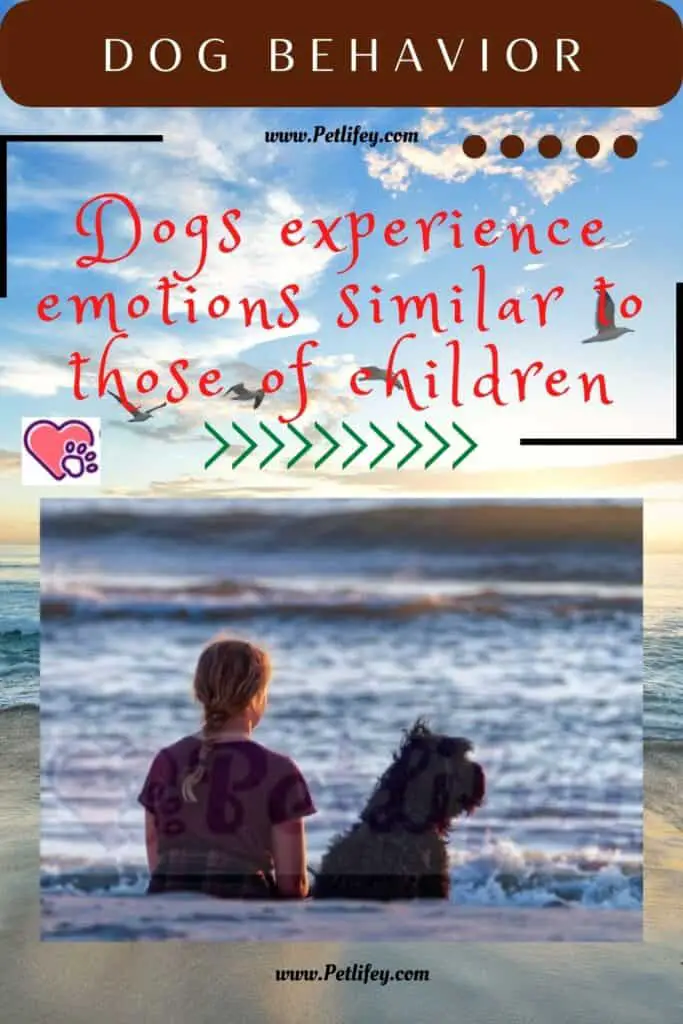
In recent years, various scientific researches have shown that dogs can get to feel emotions similar to those experienced by humans.
A study carried out at Emory University in Atlanta (United States) has shown that these animals feel the same sensations as children, and that the level of sensitivity of both is very similar.
Dogs have the same sensitivity as a child
This is demonstrated by the study carried out by neurologist Gregory Bens who, after carrying out a test on various dogs, even his own, was able to demonstrate that dogs have the same sensitivity as a child.
The experiment consisted of selecting some of these animals to undergo an MRI scan . During the test, the dogs were exposed to various types of stimuli, which generated a certain brain activity.
According to the study, the dogs’ brain activity increased as they received signals about the nutrition or smells of people they knew.
Can dogs be pessimistic or optimistic?
On the other hand, another study also related to emotions in dogs has shown that these animals can be optimistic or pessimistic just like us humans.
Put simply, when a dog is left alone in the house he gets agitated and clearly demonstrates this through barking, destroying furniture or doing his business inside the house.
In this sense, research has revealed that dogs become anxious when left alone, demonstrating a clear attitude tending towards pessimism.
The head of the investigative team at the University of Bristol (UK) that carried out the study is Professor Mike Mendl.
The man stated through various communication channels that his team was able to develop a new method for studying the difference between pessimistic or optimistic decisions in dogs.
This group of experts carried out the study using 24 dogs that had recently been placed in a dog shelter.
One of the investigators interacted with each dog in an isolated room for twenty minutes.
The next day he brought each dog back into the room, leaving them alone for a period of five minutes, during which time the animal was recorded with a camera.
During those five minutes the scholars were able to observe how the dog began to bark, jump on the furniture and scratch the door. These behaviors were repetitive in all animals.
In order to study decision making in those same dogs, the investigators placed a bowl with food and another empty bowl inside the room. Both vessels were placed in ambiguous places.
Dogs that rushed quickly to those ambiguous spots, as if they were waiting for a food reward, were classified as optimistic dogs. Conversely, those who did not come close to the bowls were called pessimists.
Mendl said: “We know that people’s moods influence their judgment, and that happy people are more likely to judge an ambiguous situation in a positive way. Our study has shown that the same procedure is also applicable to dogs “.
The results suggest that behavior considered problematic in owners will also have emotional significance for their pets, even when this behavior is not properly expressed.
There is also the possibility that some dogs may be more likely to respond with anxiety when left alone .
This is important to know as negative behavior following separation is common in dogs, and knowing how to predict this type of reaction could help to treat them properly, and to help them achieve their well-being.
What else can dogs hear?

Further studies have suggested that dogs can experience negative emotions just like humans, even with the equivalent of certain chronic or acute psychological conditions, such as depression.
Similarly, a few years ago, symptoms analogous to clinical depression, neurosis and other psychological conditions were generally accepted into what is now known as canine emotion.
On the other hand, other research reveals that dogs can also get jealous. This type of behavior, in which one animal feels frustrated by what happens to another animal, has also been found in primates.
According to scientists, this type of behavior in dogs is likely due to the close relationship between these animals and humans.






